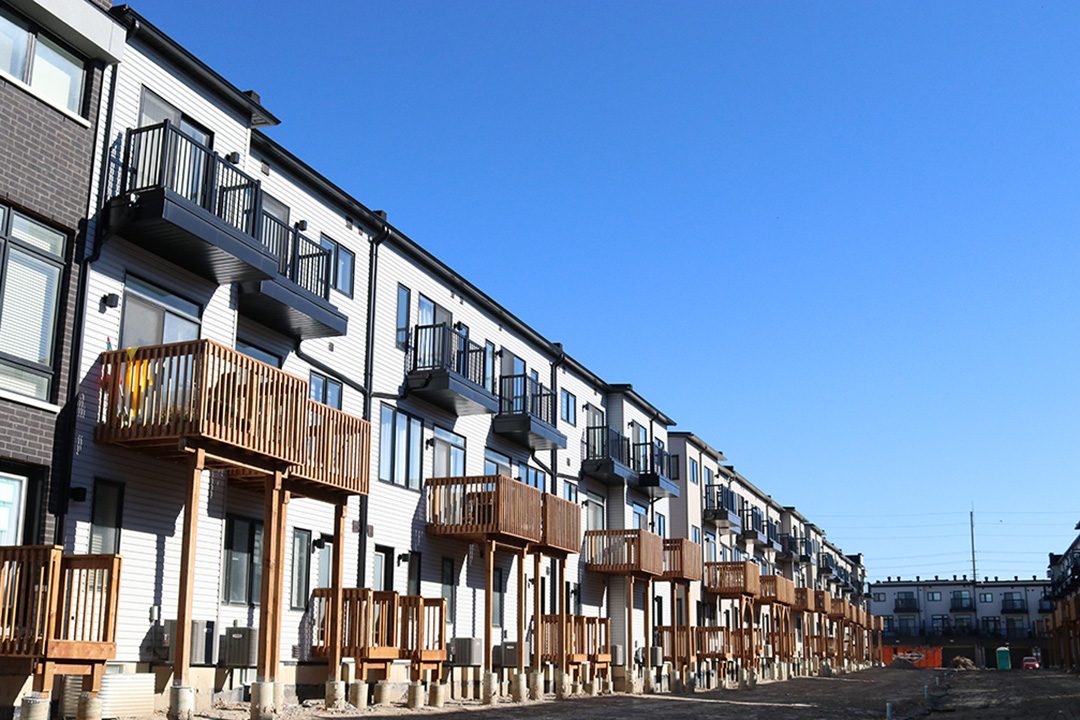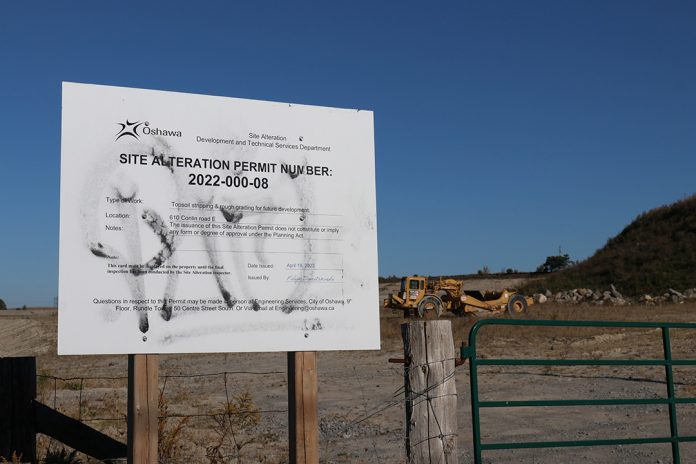Durham Region’s population growth may make it challenging to find a balance between development and ecological sustainability. With an increasing demand for homes to accommodate the growing population, questions arise about how to balance development without risking the ecosystem.
“The one thing that brought me to Durham Region was because of the wildlife that was around,” says Olga Herbert, a resident in Oshawa who has lived in Durham for 33 years. “But it’s not like that anymore.”
Herbert said her quiet neighbourhood changed when a large plot of land in Rossland was sold after the owner passed away. Loggers from British Columbia were brought to the location and began clearing the area for future housing projects. Herbert said the amount of land cleared out was like nothing she had seen before.

As Durham approves new housing developments to accommodate its growing population, these types of stories are becoming increasingly common. The process raises questions about how municipalities can balance environmental protection with the demands of economic growth and residential development. To address these concerns, Durham Region and other municipalities partner with special organizations that can identify and determine suitable areas for development while implementing strategies to minimize environmental impacts and protect local ecosystems.
One of those partnerships involves Central Lake Ontario Conservation Authority (CLOCA), a local, community-based environmental organization that provides various science-based management programs and services.
Dan Moore, a senior ecologist working for CLOCA since 2008, said it becomes more difficult to maintain a healthy ecosystem when the number of structures increases. But because our current world is based on growth, “you have to be very smart about how you develop.”
“There are people that aren’t able to afford houses,” said Moore. “There are housing shortages. So we recognize that fully. But we also recognize that there is going to be an impact on the ecological community.”
Organizations such as CLOCA work to minimize the negative environmental impacts, but Moore stresses that development impacts are inevitable even with precautions. “It’s impossible to make it zero,” he said.
Moore explained that for building developers to be permitted to build on certain areas of land, the municipality will issue an official plan to map out the process and, with the aid of conservation authorities, determine what should be developed and what should be protected.
CLOCA’s role includes managing watershed resources and implementing measures like buffer zones to safeguard water quality. Buffers reduce pollutants, such as silt, road salt and other contaminants from entering the waterways, ensuring creeks and rivers remain healthy.
“If you look at how towns were developed back in the ’70s and ’80s, there were no buffers. The headwaters of creeks, the small sections of creeks, they were just paved over and they disappeared,” said Moore.
Before buffers became mandatory, nothing prevented builders from paving over wetlands which soon became wastelands. That isn’t the case anymore, according to Moore. “We have a lot more support and policy to protect these wetlands and creeks.”
One example he shared was the use of stormwater ponds. Stormwater management ponds are used to collect run-off rain and melted snow to help reduce flooding and improve water quality by allowing dirt and other solids to settle at the bottom of the pond. Once the pollutants have been filtered out, the clean water is released back into the creeks or rivers.
“Their goal is to be a buffer between the built lands,” he said.
Stormwater ponds were introduced in the 2000s and are still relatively new, and although they produce good results, Moore said additional treatments could further improve water quality.
As the region grapples with balancing growth and sustainability, residents like Herbert believe there should be more people advocating for the protection of the natural environment, not just for the ecosystem but for citizens’ health as well. “It’s a circle of life,” she said.
For his part, Moore said he and other members of CLOCA understand these concerns.
“We tend to (have) a similar perspective as those that are concerned about the environment,” he said. “We sympathize and do our best to communicate to them, based on the available policy. These are our options for protecting lands. And we will protect every inch that we can get.”




